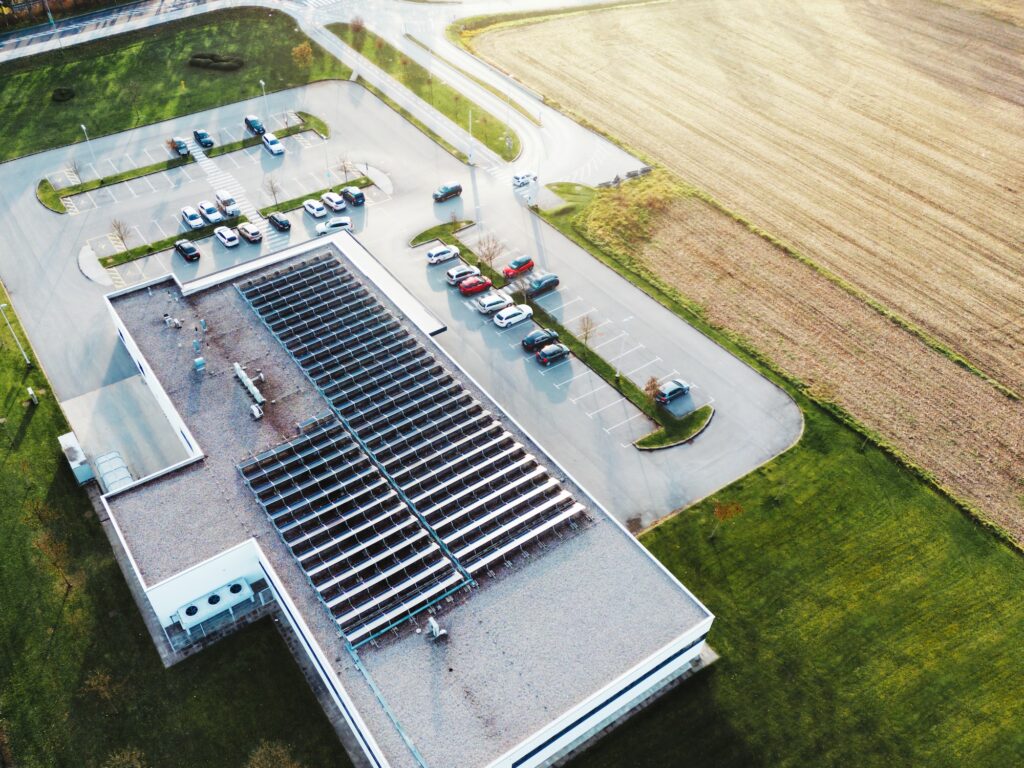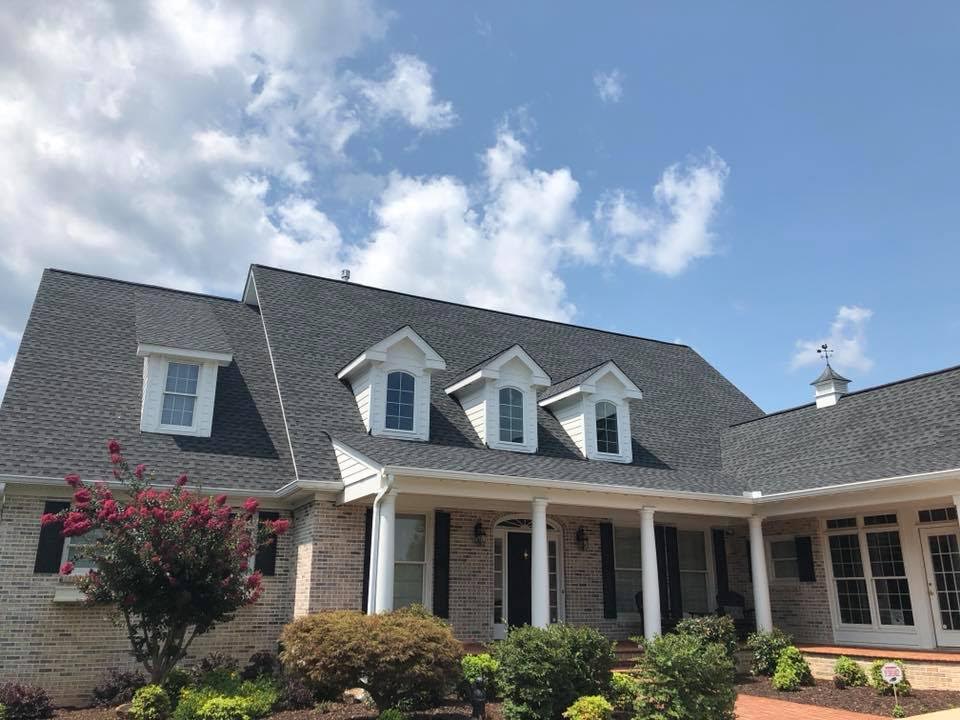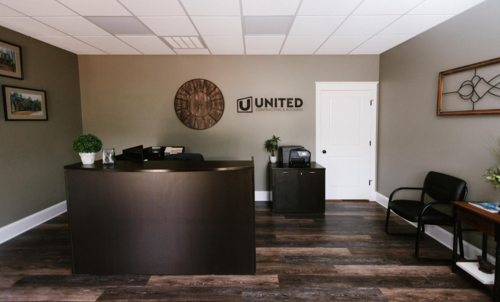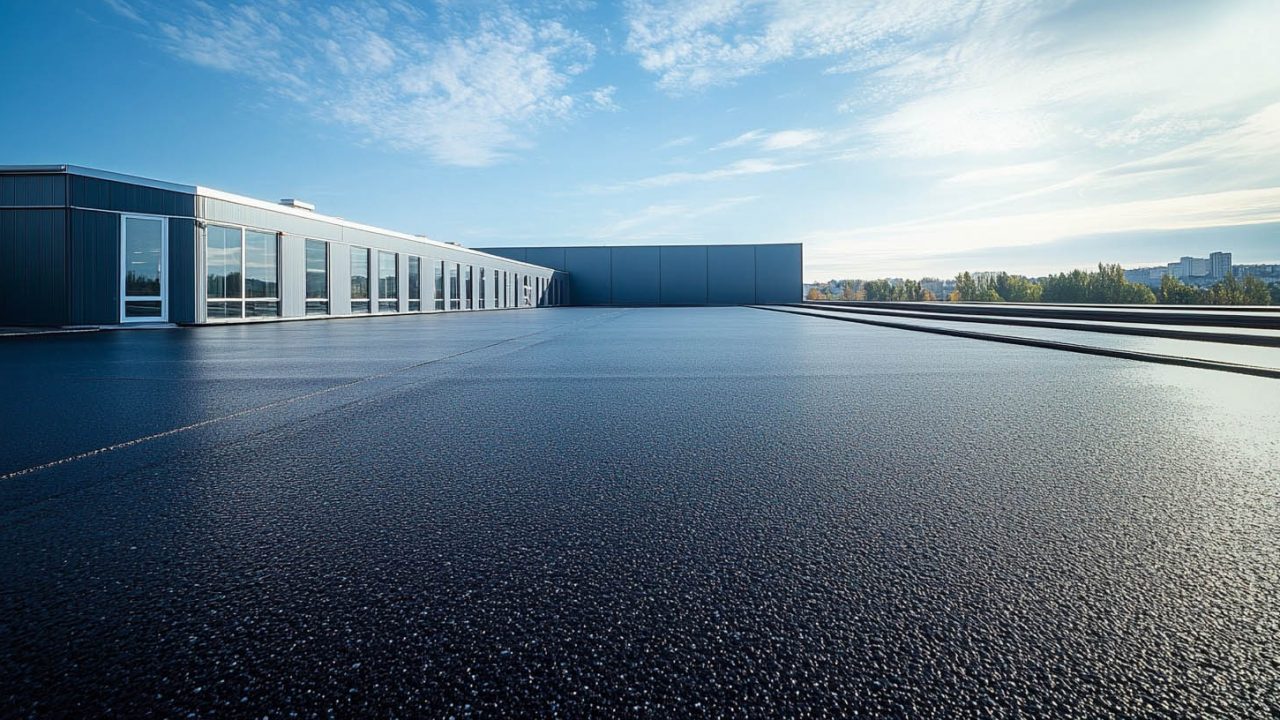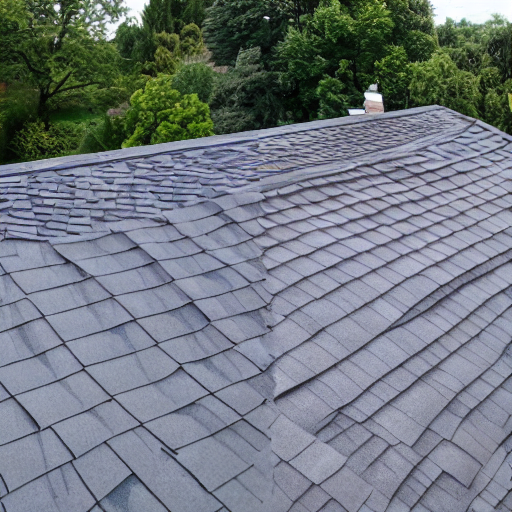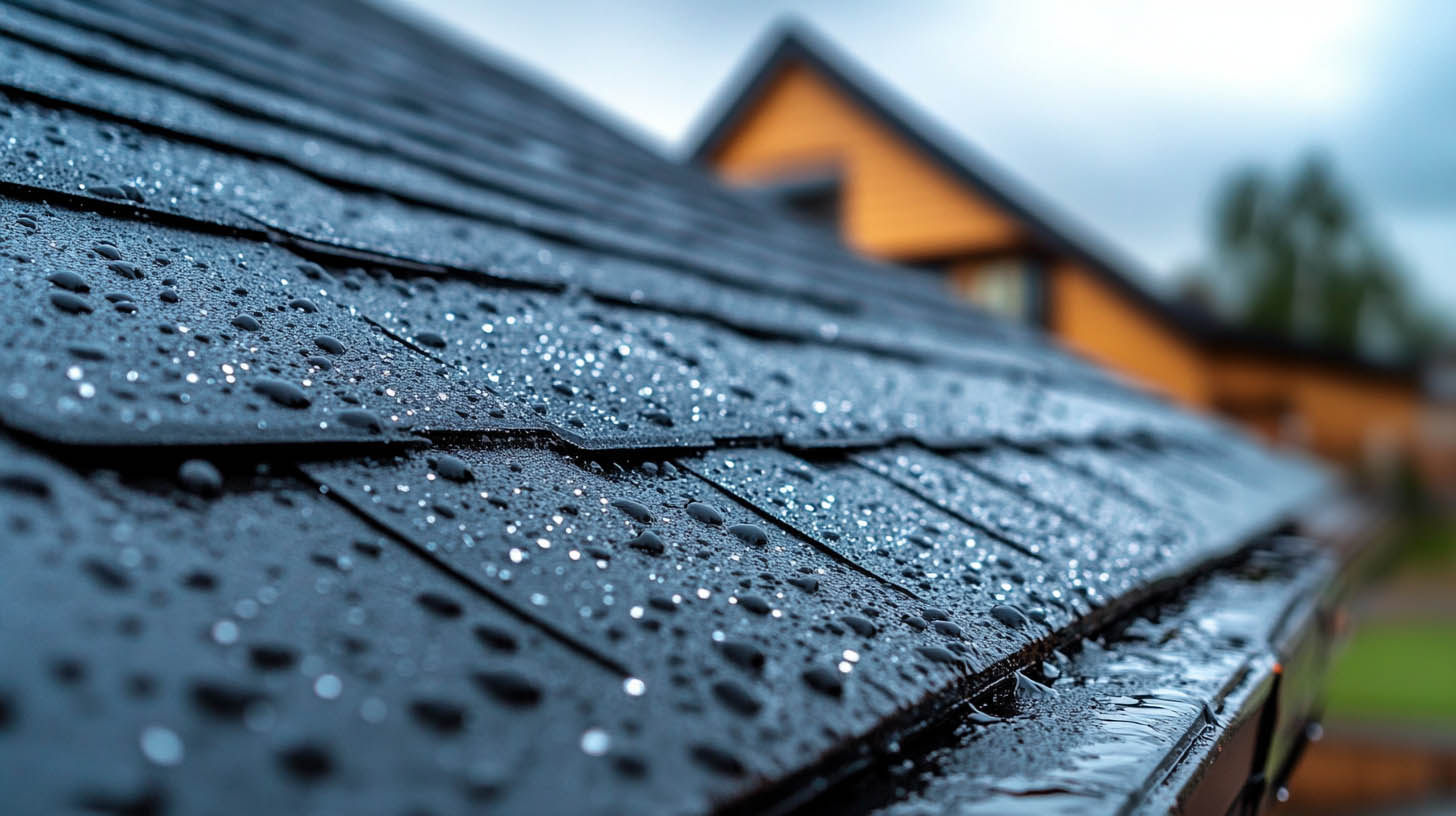Commercial roofing systems, unlike traditional sloped roofs, often utilize flat or low-slope designs to maximize interior space. At United Contracting & Roofing LLC, we specialize in providing the best materials and solutions tailored to these specific needs. Below, we explore the most common materials used in commercial roofing, each selected for its unique benefits in protecting large-scale properties such as warehouses, medical facilities, and multi-family buildings.
Single-ply Membranes
Single-ply roofing membranes are a popular choice for flat roofs due to their versatility and ease of installation. These membranes, made from rubber or plastic, are lightweight and adaptable to various roof sizes.
- Ethylene Propylene Diene Monomer (EPDM): Known for its durability and cost-effectiveness, EPDM is a synthetic rubber material suitable for low-slope and flat roofs. It typically comes in black, offering a sleek appearance and up to two decades of protection.
- Polyvinyl Chloride (PVC): PVC membranes are white, helping to reflect sunlight and reduce energy costs. This material is customizable in thickness and width, making it ideal for industrial applications. PVC roofs can last up to 20 years and are excellent for energy efficiency.
- Thermoplastic Polyolefin (TPO): TPO membranes, commonly found in white but available in other neutral colors, offer excellent weather resistance and durability. With proper maintenance, TPO roofs can last up to 30 years and are easier to clean compared to other materials.
Asphalt-based Roofing Materials
Asphalt-based roofing materials are another robust option for commercial properties, known for their durability and weather resistance. Two primary types are:
- Modified Bitumen: This asphalt product is ideal for smaller roofs or spaces that require frequent access. Modified bitumen is applied in layers, providing excellent waterproofing and low maintenance. Its flexibility and strength make it a reliable choice for areas that need regular foot traffic or frequent inspections.
- Built-Up Roofing (BUR): BUR consists of multiple layers of asphalt and reinforcing fabrics, creating a highly durable and resilient roof system. It is particularly suitable for roofs that need to withstand heavy foot traffic or harsh weather conditions. The multiple layers provide superior protection against water intrusion and enhance the roof’s overall longevity.
Both modified bitumen and BUR offer excellent performance in various commercial applications, ensuring robust protection and minimal maintenance needs. Choosing the right asphalt-based roofing material depends on your specific building requirements and environmental conditions.
Both materials offer up to 20 years of protection and are excellent for ensuring the longevity of commercial roofing systems. More information on asphalt roofing can be found here.
Choosing the Right Roofing System
Selecting the best roofing system depends on various factors, including the specific needs of your property, budget, and environmental considerations. At United Contracting & Roofing LLC, we pride ourselves on our experience, quality, and service. We are certified by the BBB and GAF Master Elite, ensuring top-tier installation and maintenance services.
Conclusion
The right commercial roofing material can significantly impact the efficiency and longevity of your building. Whether you opt for single-ply membranes like EPDM, PVC, or TPO, or choose asphalt-based materials such as modified bitumen and BUR, it is essential to consider all options and their benefits. Contact United Contracting & Roofing LLC for expert advice and professional roofing solutions tailored to your needs.For more information on developing a roofing maintenance plan for multiple facilities, click here.

